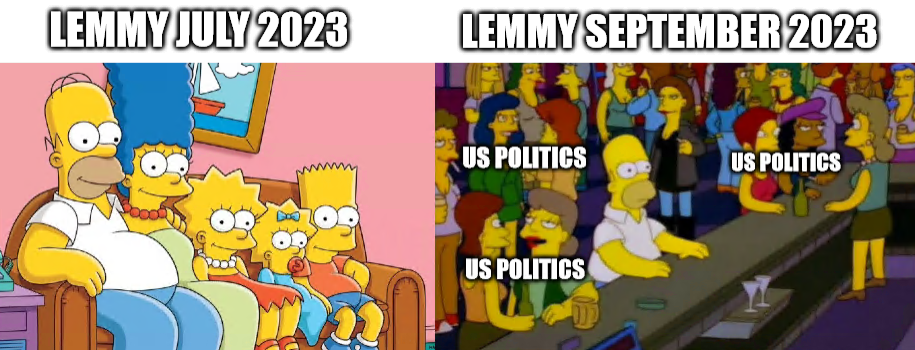this post was submitted on 18 Sep 2023
1442 points (94.8% liked)
Memes
54087 readers
928 users here now
Rules:
- Be civil and nice.
- Try not to excessively repost, as a rule of thumb, wait at least 2 months to do it if you have to.
founded 6 years ago
MODERATORS
you are viewing a single comment's thread
view the rest of the comments
view the rest of the comments

That's the colloquial usage. https://en.wikipedia.org/wiki/Cognitive_dissonance
No, that is literally a dictionary definition, not a colloquialism. A colloquialism would necessarily be informal and descriptive, not prescriptive.
You think dictionary definitions can't be descriptive?
Where did I say that? Keep your straw men to yourself.
You said it right here.
Go back to grade school and learn reading comprehension again, please. Just because I said that colloquialisms are descriptive, does not mean that I said that all dictionary definitions are prescriptive. Get your red herring straw man bullshit out of here. You clearly lost the argument if you are at this point.
What argument? I'm informing you that it refers to the feeling of discomfort from having contradictory beliefs and not the state of having two contradictory beliefs. Read this, doofus. https://en.wikipedia.org/wiki/Cognitive_dissonance
The argument against your claims? I'm informing you that cognitive dissonance refers to the simple state of holding incongruous beliefs. Read these, doofus:
https://www.merriam-webster.com/dictionary/cognitive%20dissonance
https://dictionary.cambridge.org/us/dictionary/english/cognitive-dissonance
https://www.oxfordreference.com/display/10.1093/acref/9780199976720.001.0001/acref-9780199976720-e-318
I'm not saying those are wrong, I'm saying those are the colloquial usage.
And I'm saying YOUR usage is the colloquial usage. Just look at the very source of the term, Leon Festinger's "A Theory of Cognitive Dissonance" from 1957. here is a link
Chapter 1, page 3.
He makes it clear that cognitive dissonance is the status of holding incongruous beliefs, NOT the status of discomfort. He states that cognitive dissonance CAUSES discomfort, and that people tend to seek to resolve that discomfort, but cognitive dissonance is not the discomfort itself. It is "the existence of nonfitting relations among cognitions".
I cannot upvote your comments with insults but thank you (both) for this thread, especially for adding links and the meta layer that comes with the emotions.
The comparison to hunger makes it clear to me. It isn't being compared to the state of having an empty stomach.
Oh, I see, you're fucking brain dead. Now this whole conversation makes sense. You literally cannot admit you are clearly wrong. Please go touch grass, you are pathetic.
I'll do it after I eat lunch because of the feeling of hunger, not the state of having an empty stomach.
Need that one more time? Here ya go
Maybe if you read it ONE MORE TIME it will click for you
Cognitive dissonance is the existence of nonfitting relations among cognition, not the feeling of discomfort arising from that. It is what you are suffering from right now. You have the evidence laid clearly in front of you, but you cherry pick one TINY tidbit and interpret it incorrectly so as to suit your needs. You KNOW you are wrong, and you are arguing in bad faith.
I'm arguing in bad faith? You told me to go back to grade school.
Yeah, because you clearly need it. You dont even know what bad faith is. Bad faith arguing is when you aren't actually working towards the resolution of the argument, but instead just making frivolous contradictions that you yourself probably dont even believe in, just to try and keep the other side from making a point. Insulting you is not bad faith. So, yeah, go back to school and actually pay attention this time.
Yeah, it literally isn't. An insult is not mutually exclusive to a good faith argument, but you wouldn't know that because you clearly dont understand the concept. Go look up what bad faith argumentation is.